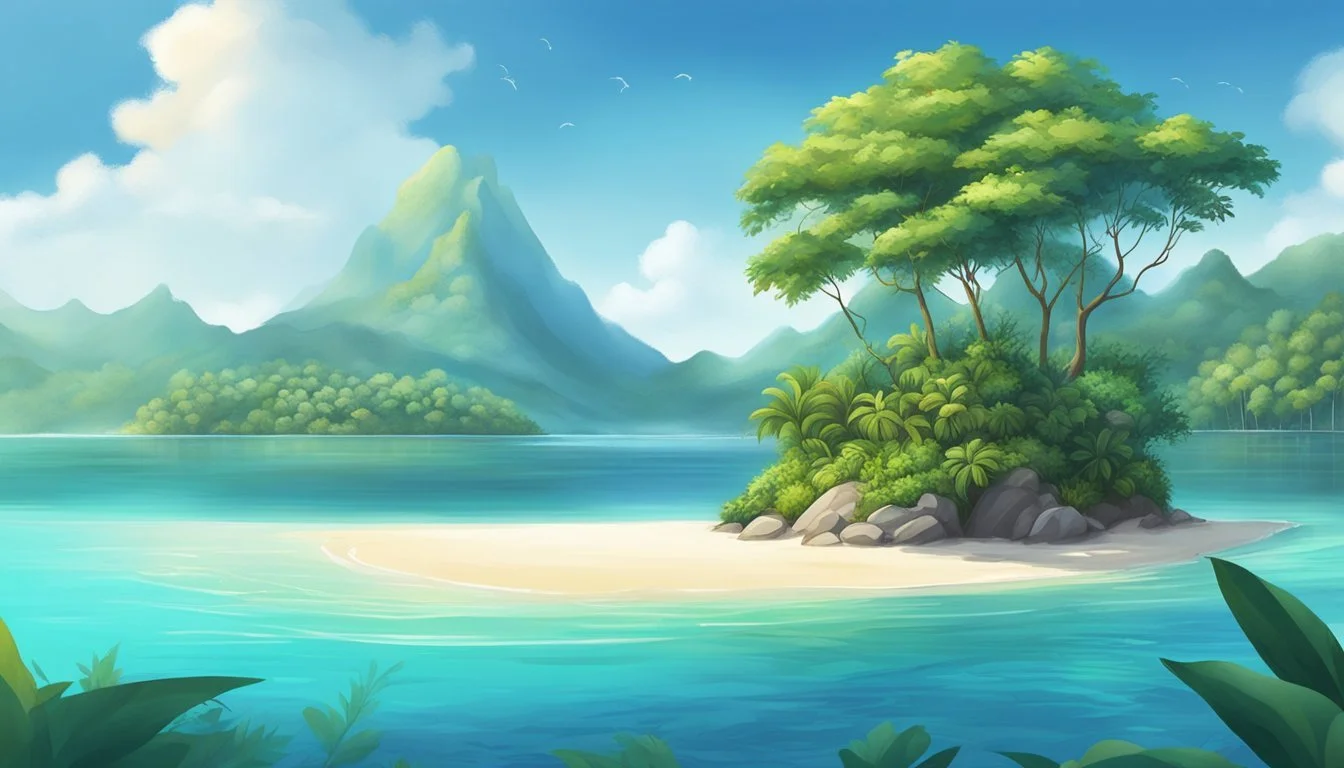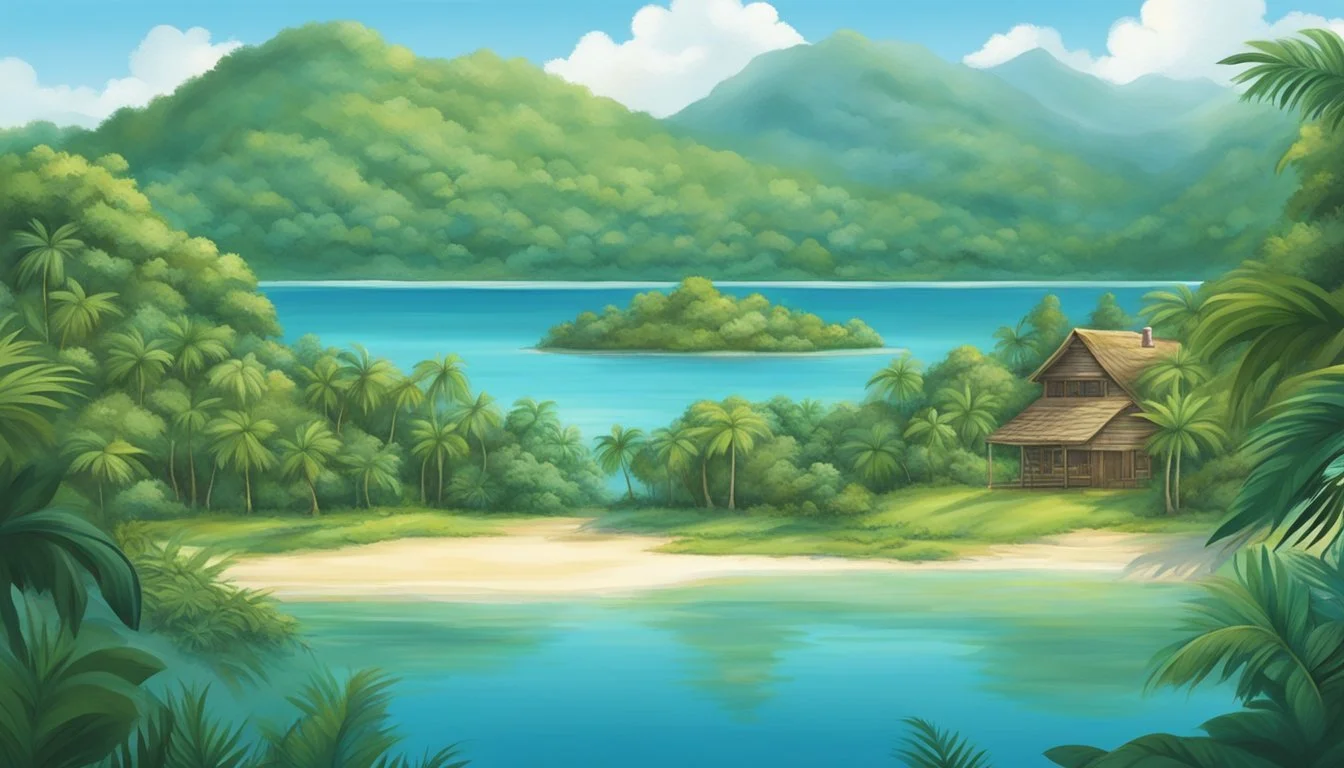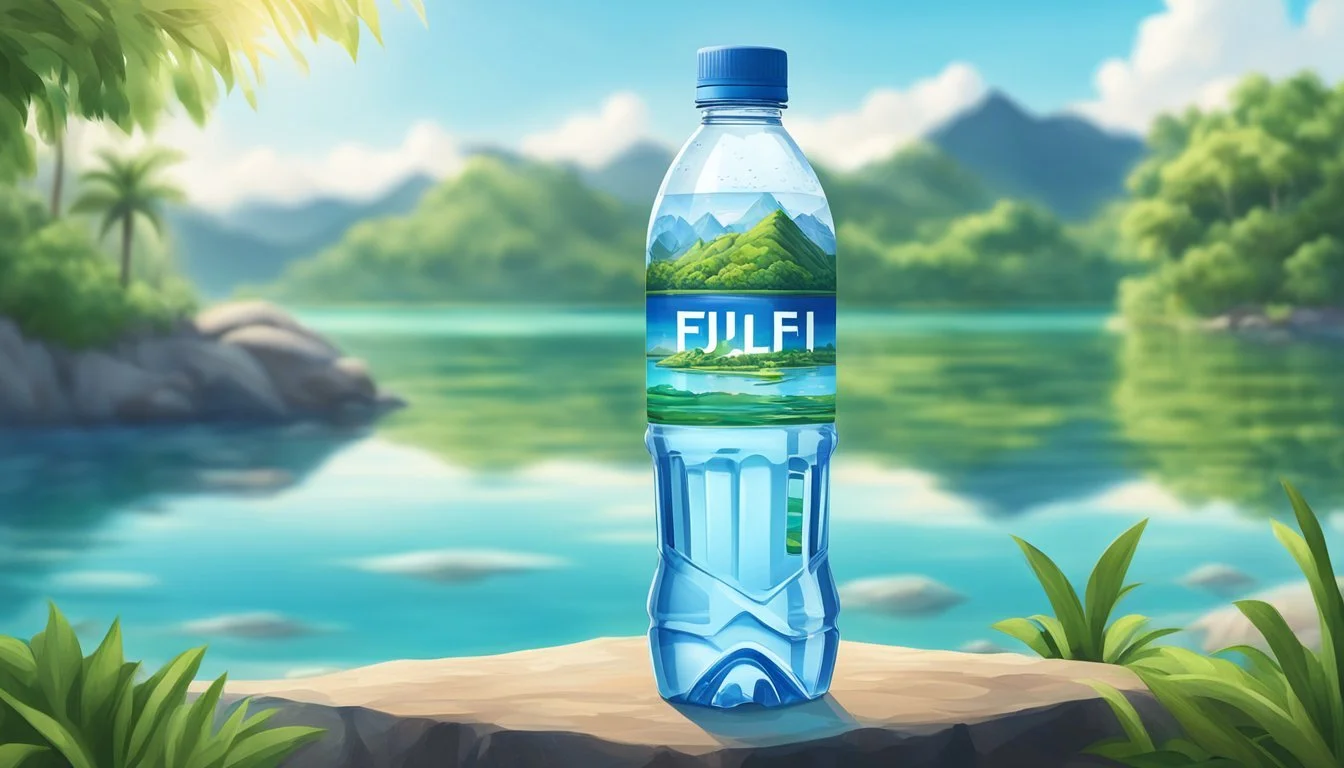Fiji vs. Crystal Lake
Comparing Premium Bottled Water
Selecting the right bottled water can be a surprisingly personal choice, with preferences often hinging on subtle differences in taste, source purity, and brand reputation. Fiji Water, sourced from an aquifer in the remote Fiji Islands, has built its name on the promise of natural artesian water untouched by human hands until it reaches the bottle. This allure of purity is a significant selling point for those prioritizing natural mineral content and a clean, fresh taste.
Crystal Lake, in contrast, presents itself as a brand that champions both reliability and simplicity. Known for its crisp and refreshing profile, Crystal Lake water is often touted for its balanced taste that appeals to a wide audience. While perhaps not as exotic as Fiji Water, Crystal Lake consistently earns praise for being a dependable and pleasant choice that doesn't overshadow your palate.
Ultimately, the decision between Fiji Water and Crystal Lake often boils down to personal taste preferences and values regarding environmental impact and water sourcing. Each brand offers its unique advantages: Fiji Water's exotic origin and rich mineral content versus Crystal Lake's straightforward, reliable quality. Readers will discover that the best choice depends on what they value most in their daily hydration.
Understanding Bottled Water
Bottled water comes in various forms and is subject to strict regulatory standards to ensure safety and quality for consumers. Each type varies in source, treatment method, and characteristics.
Types of Bottled Water
Bottled Water can be broadly categorized into several types:
Spring Water is derived from underground formations where water flows naturally to the earth's surface. This type typically retains the minerals present in the water source.
Mineral Water is similar to spring water but must contain a specific amount of dissolved minerals. It is sourced from natural reserves and is usually bottled at the source to preserve its mineral content.
Purified Water originates from any water source but undergoes treatment processes like distillation, deionization, or reverse osmosis to remove impurities. This results in very pure water, with no sediments or dissolved minerals.
Regulatory Standards and Safety
Regulatory Standards for bottled water are enforced by agencies like the FDA in the United States. Bottled water must meet the same safety requirements as tap water.
Spring and Mineral Water must adhere to additional guidelines regarding the presence of naturally occurring minerals and the method of collection. Purified Water is subject to rigorous processing standards to ensure contaminants are removed effectively.
Safety is paramount, as bottled water must be free from harmful bacteria and chemicals. Bottling facilities undergo regular inspections to comply with hygiene standards. Packaging, especially the use of single-use plastics, is also regulated to minimize environmental impacts and health risks from potential chemical leaching.
Comparative Analysis of Fiji Water and Crystal Lake
Fiji Water and Crystal Lake are popular bottled waters known for their distinct features. This section explores their sources, filtration methods, taste profiles, and nutritional content.
Source and Natural Composition
Fiji Water originates from an aquifer in the remote Yaqara Valley of Viti Levu, Fiji. The water is naturally filtered through volcanic rock, enriching it with minerals like silica, calcium, and magnesium.
Crystal Lake, on the other hand, comes from a spring in the pristine regions of Maine, USA. It is also naturally filtered through rock formations, which impart a different mineral composition compared to Fiji Water.
Filtration and Purification Processes
Fiji Water is praised for its natural filtration. The volcanic rock acts as a natural filter, removing impurities without human intervention. This method preserves the natural mineral content and purity of the water.
Crystal Lake employs a multi-step filtration process involving carbon filters and UV sterilization. This ensures any potential contaminants are removed while maintaining the water's natural taste and mineral balance.
Taste Profile and Aftertaste
Fiji Water has a smooth, slightly sweet taste attributed to its high silica content. It leaves a clean aftertaste with no lingering flavors, making it a favorite among many consumers.
Crystal Lake offers a crisp and fresh taste with a more pronounced mineral presence. The aftertaste is clean, though some may notice a subtle mineral flavor, which can be appealing to those who prefer a more robust water profile.
PH Levels and Mineral Content
Fiji Water has a neutral to slightly alkaline pH level of around 7.7. It contains a balanced mix of minerals, including silica, calcium, and magnesium, contributing to its smooth taste.
Crystal Lake typically has a pH level closer to neutral, around 7.0. Its mineral content includes magnesium and calcium, but in different proportions compared to Fiji Water, impacting its overall taste and health benefits.
Health Benefits and Electrolytes
Fiji Water provides a natural source of electrolytes, which can help maintain hydration levels. The presence of silica is also purported to aid in skin health and joint function.
Crystal Lake offers essential minerals like calcium and magnesium, beneficial for bone health and metabolic functions. Its electrolytes support hydration and muscle function, making it a health-conscious choice for daily consumption.
Brand Comparison and Market Presence
Fiji and Crystal Lake are two prominent bottled water brands well-known for their unique branding, environmental practices, pricing, and packaging innovations.
Branding and Consumer Perception
Fiji Water is often associated with luxury and exclusivity. The brand emphasizes its unique source from an artesian aquifer in Fiji, which resonates well with consumers looking for premium quality. Its aesthetically pleasing square bottle design further enhances its upscale image.
Crystal Lake focuses on purity and a crisp, refreshing taste sourced from natural springs. It has built a strong reputation among health-conscious consumers who prefer naturally sourced options. The brand's emphasis on purity appeals to those seeking clean and reliable hydration.
Environmental Impact
Fiji Water has faced criticism regarding carbon emissions due to its long-distance shipping from Fiji to global markets. In response, the brand has initiated carbon-reduction efforts to offset its environmental footprint. Fiji's initiatives include using renewable energy and supporting local environmental projects.
Crystal Lake promotes its environmentally friendly approach by sourcing water locally, reducing transportation emissions. The brand employs eco-friendly packaging, including recycled plastics. These efforts resonate with consumers concerned about sustainability and contribute positively to the brand's image.
Price and Value Proposition
Fiji Water positions itself as a premium product with prices ranging between $2.00 and $2.50 for a 500ml bottle. This pricing reflects its marketing strategy aimed at the high-end market. The brand's value proposition lies in its perceived purity and luxurious branding.
Crystal Lake offers a more affordable alternative, targeting a broader consumer base. A 500ml bottle typically costs around $1.50 to $2.00, making it accessible to price-sensitive buyers. The brand balances affordability with quality, presenting itself as a practical choice for everyday consumption.
Packaging Innovations
Fiji Water's square bottle design is iconic and differentiates it from competitors. The brand has also started using recycled materials in its packaging to reduce environmental impact. The visual appeal and innovation in packaging design contribute significantly to Fiji’s market presence.
Crystal Lake emphasizes glass bottle options along with traditional plastic bottles. Glass packaging appeals to consumers looking for a more premium and eco-friendly alternative. The brand’s innovation extends to biodegradable labels and caps, showcasing a commitment to sustainability.
Additional Considerations in Bottled Water Choice
When selecting bottled water, consumers often weigh factors such as flavor variations, convenience, and environmentally friendly alternatives. These considerations can impact both personal preferences and overall health and sustainability.
Flavor Variations and Additives
Bottled water brands differ in flavor due to mineral content and additives. Fiji Water is known for its smooth taste, attributed to its natural artesian source and mineral composition. On the other hand, brands like Crystal Lake may offer a purer taste or enhanced options with electrolytes.
Additives can include vitamins, minerals, or flavorings. Some consumers prefer flavored or carbonated water as an alternative to sugary beverages. Checking the label for the source and any added ingredients helps ensure consumer preferences are met without compromising health.
Convenience and Lifestyle Factors
Convenience plays a significant role in bottled water choice. Smaller, portable bottles fit easily into daily routines, while larger multipacks are better for home use. Accessibility in stores or via delivery services also impacts decisions, especially for those with busy lifestyles.
Crystal Lake often comes in multipacks and is widely available, making it a convenient choice. Fiji Water, with its premium price point, may be favored for special occasions or by those adhering to specific dietary preferences or seeking luxury.
Alternatives to Bottled Water
Considering alternatives to bottled water can lead to cost savings and environmental benefits. Filtered tap water systems provide clean water without the plastic waste associated with single-use bottles. Reusable bottles and home filtration systems are sustainable options that reduce environmental impact.
Consumers can explore carbonated water makers for fizzy drinks at home. For those preferring eco-friendly options, products like Just Water with sustainable packaging serve as viable choices, aligning with both environmental and economic goals. These alternatives ensure hydration needs are met while addressing environmental concerns.
Summary and Recommendations
Fiji Water and Crystal Lake both offer unique qualities that appeal to different consumer preferences.
Taste Profile: Fiji Water features a smooth and soft taste, attributed to its volcanic rock filtration. On the other hand, Crystal Lake provides a crisp and refreshing experience, praised for its pure and natural flavor.
Quality: Fiji Water is well-known for its distinct, smooth mouthfeel and slightly sweet taste, making it a popular choice among consumers. Crystal Lake has a strong reputation for its consistent and refreshing quality, derived from pristine natural sources.
Purity: Fiji Water is sourced from an artesian aquifer in Viti Levu, Fiji, ensuring a high level of natural purity. Crystal Lake water comes from protected springs, maintaining its clean and untainted character.
Safety: Both Fiji Water and Crystal Lake comply with strict safety standards, undergoing rigorous testing to ensure safety for consumption.
Key Differences
Feature Fiji Water Crystal Lake Taste Smooth, soft, slightly sweet Crisp, refreshing, natural Price Range (500ml) $2.00 - $2.50 Varies Source Artesian aquifer in Fiji Protected springs Packaging Single-use plastic bottles Eco-friendly options available
Recommendations:
For those who prioritize environmental considerations, Crystal Lake might be a better option.
If a smooth and slightly sweet taste is preferred, Fiji Water stands out.
Both options are safe and high-quality choices, so personal preferences and priorities will drive the final decision.
More About Fiji
Fiji vs Mountain Valley Spring Water: Which Bottled Water is Better?
Fiji vs Whole Foods Italian Still Mineral water: Which Bottled Water is Better?
More About Crystal Lake
Aqua Carpatica vs Crystal Lake: Which Bottled Water is Better?
Cascade Mountain vs Crystal Lake: Which Bottled Water is Better?
Core Hydration vs Crystal Lake: Which Bottled Water is Better?
Crystal Geyser vs Crystal Lake: Which Bottled Water is Better?
Crystal Lake vs Essence pH10: Which Bottled Water is Better?
Crystal Lake vs Proud Source: Which Bottled Water is Better?
Hawaii Volcanic vs Crystal Lake: Which Bottled Water is Better?
Hawaiian Springs vs Crystal Lake: Which Bottled Water is Better?
Ice Mountain vs Crystal Lake: Which Bottled Water is Better?
Icelandic Glacial vs Crystal Lake: Which Bottled Water is Better?
Kirkland Signature vs Crystal Lake: Which Bottled Water is Better?
Liquid Death vs Crystal Lake: Which Bottled Water is Better?
Mountain Valley Spring Water vs Crystal Lake: Which Bottled Water is Better?
Nestle Pure Life vs Crystal Lake: Which Bottled Water is Better?
Poland Spring vs Crystal Lake: Which Bottled Water is Better?
Purely Sedona vs Crystal Lake: Which Bottled Water is Better?
Richard's Rainwater vs Crystal Lake: Which Bottled Water is Better?
San Pellegrino vs Crystal Lake: Which Bottled Water is Better?
Simple Truth vs Crystal Lake: Which Bottled Water is Better?
Solan de Cabras vs Crystal Lake: Which Bottled Water is Better?
Talking Rain AQA vs Crystal Lake: Which Bottled Water is Better?
Whole Foods 365 vs Crystal Lake: Which Bottled Water is Better?
Whole Foods Italian Still Mineral water vs Crystal Lake: Which Bottled Water is Better?





